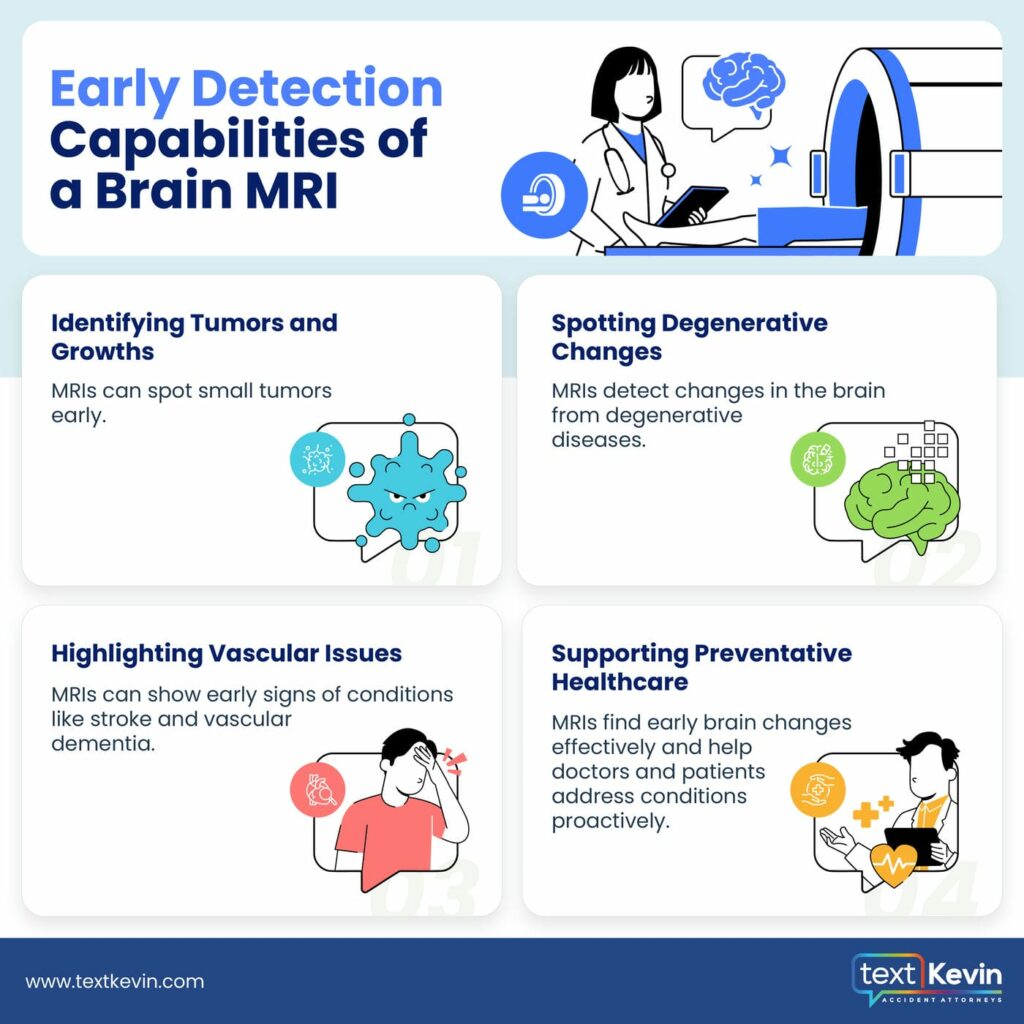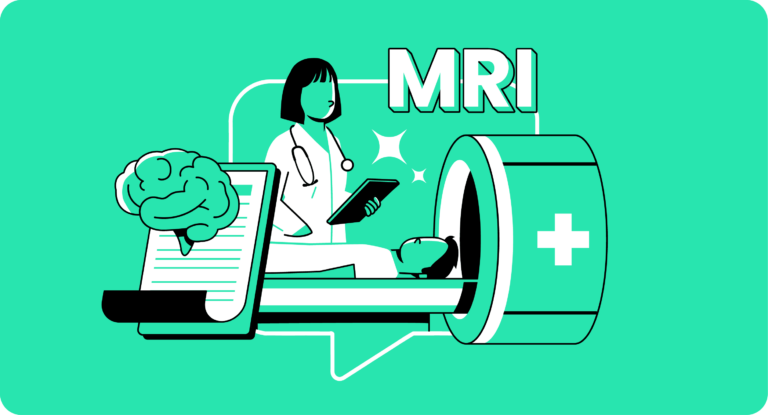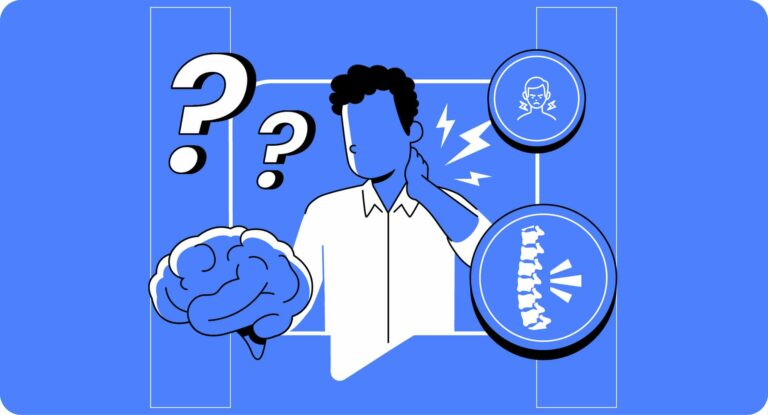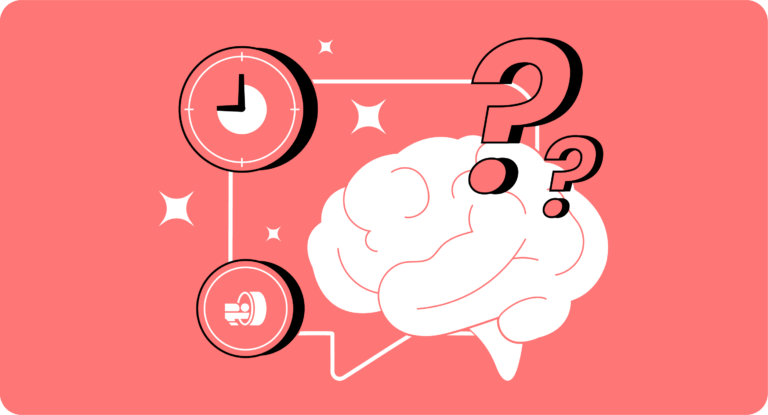When your doctor says you need a brain MRI, it’s natural to feel a bit worried. It’s completely normal to care deeply about your health, but an MRI of the brain is not something to be afraid of.
If your doctor has suggested an MRI for your brain, it means they want to examine your brain more closely, and they believe an MRI is the best way to do this. That’s all there is to it.
Let’s dive into what a brain MRI involves so you can understand what to expect.
What is an MRI?
An MRI, which stands for Magnetic Resonance Imaging, is a sophisticated diagnostic tool that doctors use to see inside your body without making any cuts. This method is completely non-invasive. It avoids the use of radiation, distinguishing it from other types of imaging tests.
MRIs use magnetic fields and radio waves to create body images.
Here’s how it works:
In an MRI machine, water molecules align with magnets. When the magnets turn off, molecules emit radio waves. The machine captures and transforms these waves into images. This tech produces detailed body pictures, aiding diagnosis and treatment planning.
MRIs offer clear insights into brain structure and tissues. Radiologists use these images for precise analysis and understanding. It’s a crucial tool for medical professionals to diagnose accurately.
How a Brain MRI Differs from Other MRI Scans
A brain MRI focuses on the brain and nearby structures. It reveals details about soft tissues: gray matter, white matter, blood vessels, and fluid-filled spaces. Healthcare pros use it to detect and manage brain issues. These include tumors, inflammation, developmental problems, and degenerative diseases. Brain MRI is vital for brain health protection.
How Long Does a Brain MRI Procedure Take?
The duration of a brain MRI varies based on requirements. Plan extra time for flexibility in your schedule.
A standard brain MRI lasts 30 to 60 minutes. It captures detailed images for comprehensive brain examination.
Sometimes, a contrast agent is used for clarity. It highlights specific brain areas like tumors or inflammation.
This process might slightly prolong the MRI procedure. Preparation and paperwork add to the overall visit time.
Allocate extra time for a stress-free experience. Be prepared for a thorough and smooth process.
Reasons Behind the Recommendation for a Brain MRI
Your healthcare provider suggests a brain MRI for a detailed view. Unlike CT scans, it offers unique capabilities.
Detail in Imaging
Choosing an MRI offers detailed brain images, which are crucial in diagnosing conditions. It’s precise and accurate for identifying brain tumors, stroke, and more.
Ability to Differentiate Between Tissues
MRI is great at telling brain tissue types apart. It helps diagnose various neurological conditions accurately. Whether finding small tissue changes or checking for inflammation, MRI gives clear images for diagnosis and treatment planning.
Non-Invasive and Radiation-Free
Your healthcare provider may choose an MRI for its safety. Unlike X-rays or CT scans, MRIs don’t use radiation. MRI’s magnetic fields and radio waves create images safely. It’s ideal for multiple scans or sensitive patients.
Advanced Diagnostic Capabilities
MRIs excel at showing hidden conditions other scans miss. They’re crucial for brain vessel issues and detailed surgery plans. MRIs guide treatment decisions, improving patient results significantly.
Your doctor suggests a brain MRI for detailed evaluation. It’s a top-notch technology for accurate diagnoses and care.
Early Detection Capabilities of Brain MRI
A brain MRI can detect brain changes before symptoms appear. It’s crucial for early treatment and better patient outcomes.
Identifying Tumors and Growths Early
Certain brain tumors may not show symptoms until they grow larger. This can affect brain function or cause skull pressure. An MRI can spot these small tumors early, allowing better treatment.
Spotting Degenerative Changes
Degenerative diseases like Alzheimer’s show brain changes before symptoms. MRIs detect these changes early for planning care and treatment.
Highlighting Vascular Issues
Conditions like stroke and vascular dementia can show on an MRI. Early detection helps prevent brain damage and severe symptoms.
Supporting Preventive Healthcare
In preventive healthcare, MRI finds early brain changes effectively. It helps patients and providers address conditions proactively.

Diagnostic and Follow-Up Uses of Brain MRI
A brain MRI is a key aspect of medicine, aiding diagnosis and treatment.
When unusual symptoms appear, or a neurological issue is suspected, doctors use a brain MRI. It helps examine brain structure and functions, pinpointing causes or disorders. This detailed imaging guides treatment decisions with accurate information.
Follow-Up and Monitoring
Following the initial diagnosis, the role of a brain MRI evolves to focus on monitoring and follow-up. This includes:
- Tracking Disease Progression: For chronic conditions, such as multiple sclerosis or certain types of brain tumors, regular MRI scans can show how the disease is evolving over time. This information is crucial for adjusting treatment plans to better suit the patient’s current needs.
- Evaluating Treatment Success: Post-treatment MRIs offer clear insights into how well a particular therapy is working. For example, after surgery, radiation, or chemotherapy for a brain tumor, an MRI can assess whether the tumor has been successfully reduced or eliminated.
- Identifying New Issues: Regular MRI scans can also detect the emergence of new or secondary problems, allowing for prompt intervention. This is particularly important in managing complex neurological conditions, where the brain’s health can influence overall well-being.
If your doctor suggests another brain MRI, it’s part of routine check-ups. They want to monitor your condition, treatment progress, or new issues. The aim is to keep your health in check and adjust care promptly.
Effectiveness of MRI in Identifying Brain Infections or Inflammations
MRI scans help tremendously fpr diagnosing brain infections like meningitis or encephalitis. Adding a contrast agent highlights affected areas effectively. Swelling or tissue appearance changes signal infections or inflammations. MRI imaging reveals these alterations clearly, aiding diagnosis.
MRI in Diagnosing Brain Injuries
MRI scans are crucial for diagnosing brain injuries. They uncover minor abnormalities unseen by other methods. This is vital for conditions like concussions, which might lack visible changes. MRIs excel at spotting contusions and brain bruises, providing detailed injury information. They reveal the injury’s location, size, and severity accurately.
MRI’s Contribution to Detecting Degenerative Conditions
In diseases like Alzheimer’s or Parkinson’s, MRIs aid diagnosis. They reveal brain shrinkage, detectable even early on. MRI locates affected brain areas, distinguishing between diseases. Also, MRIs rule out other causes, like tumors or strokes.
Reach Out to Us at Crockett Law Group
Dealing with an accident can feel chaotic. A brain MRI can help diagnose any injuries you’ve suffered. It’s a key step in taking charge of your health.
If you find yourself or a loved one in this situation, knowing where to turn for legal support is essential. Kevin Crockett, an award-winning personal injury lawyer, stands ready to assist.
Raised in Orange County and a distinguished graduate from the University of California, Irvine, Kevin Crockett has dedicated his career to the field of personal injury law. With a foundation in Criminology, Law, and Society, followed by a law degree from the University of California, Irvine School of Law, Kevin’s career is deeply rooted in understanding the intricacies of personal injury cases.
Before founding his own firm, he was a senior attorney at a major personal injury law firm in Southern California. There, he successfully represented over a thousand accident victims. Kevin has also recovered millions of dollars in settlements across the state.
Kevin’s commitment to his clients is second to none. By choosing to start his own firm, he aimed to offer a more personalized approach to legal representation, ensuring that every client receives the attention and support they deserve. His hands-on involvement in each case, combined with his aggressive approach to fighting insurance companies, has not only earned him a perfect 10.0 ‘Superb’ rating on AVVO but also the trust and gratitude of his clients. This is evidenced by his numerous 5-star reviews.
If you’re seeking guidance or representation in a personal injury case, especially one involving complex medical diagnostics like brain MRIs, Kevin Crockett is prepared to fight for you. His comprehensive understanding of both the legal and personal aspects of such cases makes him a formidable ally in your pursuit of justice.
- Call: For immediate assistance and to learn how we can support your case, dial [phone].
- Text Message: If texting is more convenient, send us a message at (714) 492-1725 with your information, and we’ll guide you through your next steps.
- Chat: Our live chat support system is available anytime to provide quick assistance. Click START CHAT to begin.
- Email: For inquiries about your potential case or any questions, email us, and we’ll respond as soon as possible.
With Kevin Crockett by your side, you’re gaining a partner who understands the impact of your situation and is dedicated to securing the best possible outcome for you. Reach out to a skilled California car accident lawyer at Crockett Law Group today. We’ll help you get back on your feet after an accident and get the compensation you deserve.










